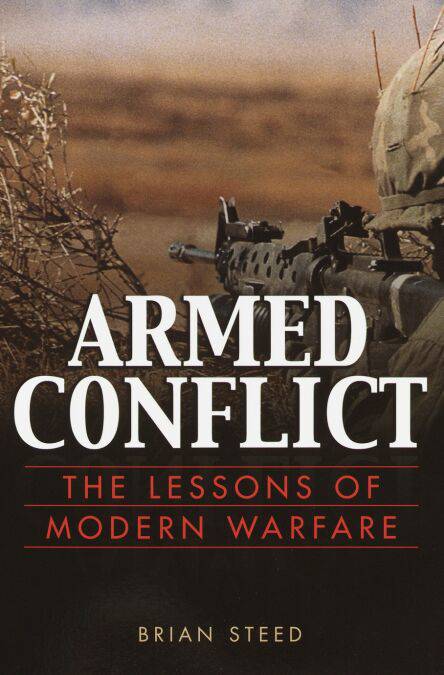
- Retrait gratuit dans votre magasin Club
- 7.000.000 titres dans notre catalogue
- Payer en toute sécurité
- Toujours un magasin près de chez vous
- Retrait gratuit dans votre magasin Club
- 7.000.0000 titres dans notre catalogue
- Payer en toute sécurité
- Toujours un magasin près de chez vous
17,96 €
+ 17 points
Format
Description
What challenges will America face in armed conflicts of the future and how will we prepare for them? National security depends upon the ability of the military to “predict” the future nature of war. Despite the difficulty in making such predictions, one must remember: nation states and other countries will continue to use armed conflict as a means to further their aims, and these aims will, at times, run contrary to American interests. As a result, the United States will continue to be confronted with armed conflict in the days and years ahead.
A military theorist and experienced armor officer, Brian Steed provides insights into the future of armed conflict by focusing on what has occurred in the past–not because the past repeats itself, but because it reveals timeless principles of warfare. Five battles, one each in Korea, Vietnam, the Falklands, the Persian Gulf, and Somalia are analyzed historically, geographically, and strategically. Steed’s analysis of these engagements clearly demonstrates that the key to victory on the battlefields of the future is the small unit. In refreshing layman’s prose, the author focuses on why the events occurred as they did, and explores the significance of each battle in terms of its political and military ramifications. He concludes with lessons learned that will greatly benefit future American ground combat commanders.
Armed Conflict informs the reader about the historical trends of combat operations and the realities of war–today and into the future. It will also serve to guide a new generation of military and civilian leaders as they prepare to face the inevitable conflicts in the new century.
A military theorist and experienced armor officer, Brian Steed provides insights into the future of armed conflict by focusing on what has occurred in the past–not because the past repeats itself, but because it reveals timeless principles of warfare. Five battles, one each in Korea, Vietnam, the Falklands, the Persian Gulf, and Somalia are analyzed historically, geographically, and strategically. Steed’s analysis of these engagements clearly demonstrates that the key to victory on the battlefields of the future is the small unit. In refreshing layman’s prose, the author focuses on why the events occurred as they did, and explores the significance of each battle in terms of its political and military ramifications. He concludes with lessons learned that will greatly benefit future American ground combat commanders.
Armed Conflict informs the reader about the historical trends of combat operations and the realities of war–today and into the future. It will also serve to guide a new generation of military and civilian leaders as they prepare to face the inevitable conflicts in the new century.
Spécifications
Parties prenantes
- Auteur(s) :
- Editeur:
Contenu
- Nombre de pages :
- 304
- Langue:
- Anglais
Caractéristiques
- EAN:
- 9780307513243
- Date de parution :
- 24-03-09
- Format:
- Ebook
- Protection digitale:
- Adobe DRM
- Format numérique:
- ePub

Les avis
Nous publions uniquement les avis qui respectent les conditions requises. Consultez nos conditions pour les avis.






